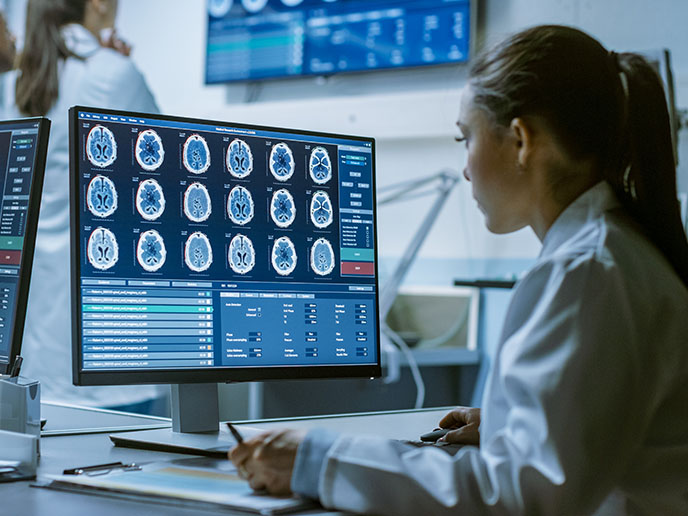Establishing excellence in fatty acid brain research
Growing evidence suggests that fatty acids play a pivotal role in brain energy metabolism(opens in new window), not only as a substrate but also as important signal molecules and regulators of central and peripheral energy balance. Furthermore, disturbances in brain fatty acid metabolism have been linked to neuronal dysfunction. “This is an area that has been understudied, in our opinion,” says FAT4BRAIN(opens in new window) project coordinator Maija Dambrova from the Latvian Institute of Organic Synthesis(opens in new window) (LIOS). To this end, LIOS has pioneered the study of mitochondria-related(opens in new window) fatty acid metabolism, and possible links to the development of neurological disorders. Mitochondria are membrane-bound cell organelles that generate most of the chemical energy needed to power the cell’s biochemical reactions. This research could be critical to the advancement of brain science, as well as the development of science-based diets or identification of dietary supplement needs.
Centres of excellence in neurological disorders
In order to fully contribute to this field of research, and be recognised internationally as a centre of excellence, LIOS needed to strengthen its research capacities and raise its profile. This was a key aim of the EU-funded FAT4BRAIN project. To achieve this, cooperation was fostered with world-leading partners in translational neuropharmacology, metabolism and neuropsychiatric imaging research and innovative mitochondria research. Workshops, expert meetings and training sessions were held. Project partners included Uppsala University(opens in new window) in Sweden, Eberhard Karls University Tuebingen(opens in new window) and Jena University Hospital(opens in new window) in Germany and Oroboros Instruments(opens in new window) in Austria. “LIOS scientists also interned with renowned experts in the field, to foster excellence and learn new research methods,” adds Dambrova. “The project focused specifically on developing the knowledge and skills of young scientists.”
Fatty acids and brain energy metabolism
The project succeeded in establishing a network of excellence focused on fatty acid metabolism in the development of neurological disorders, with LIOS a key partner. This will serve to highlight the role of fatty acids in brain energy metabolism and help researchers to identify useful research methods and contacts. Thanks to this enhanced research cooperation, important discoveries are being made. For example, scientists have found that the regulation of the fatty acid metabolism intermediates acylcarnitines(opens in new window) plays a significant role in memory formation, nervous system function, and the development of neurodegenerative diseases. The detrimental role of long-chain acylcarnitines in stroke, heart infarction and insulin resistance could make these findings important for millions of patients worldwide. Indeed, measuring acylcarnitine profiles could help to diagnose rare diseases related to energy metabolism and insulin resistance, and identify new opportunities for drugs and food supplements.
Recognised expert in mitochondrial measurements
The success of this networking project has helped to consolidate LIOS’s position as a global centre of excellence in this field. This is critical, as a significant portion of the institute’s income comes from industry collaboration. “Being recognised as an expert in mitochondrial measurements will help in this regard,” notes Dambrova. Since the FAT4BRAIN project, a number of new research project applications in this field involving LIOS have been filed. Moreover, LIOS researchers, in collaboration with their research partners, have increased the number of publications in high-impact journals. This is helping to increase further the visibility of the institute’s work. Most notably, the team has published a joint review publication on acylcarnitines, in collaboration with the internationally recognised Human Metabolome Database(opens in new window). This update includes the chemical structures, properties and pathways for a total of 1 240 acylcarnitines.







